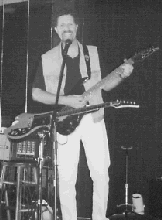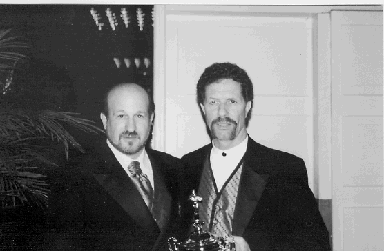What is the difference between pleasure and enjoyment?
We may tend to think of these words as synonymous, but for the purpose of discussion this month I will make a distinction between them. Many years ago I was teaching a class of adult students to stretch and extolling them to enjoy the feeling of stretching. One of the Orange Belts, an attorney named Sal, commented that stretching was “not like eating chocolate ice cream”. He was right of course, for while ice cream may bring us pleasure, like food, drink, sleep, watching TV or carnal pleasures, it does not bring us joy or happiness. It does not qualify as enjoyment. Enjoyment requires an element of personal growth, novelty or accomplishment. Playing a game against a well-matched opponent, having a discussion which allows us to express new ideas we may not have had before or finishing a Karate class hot and sweaty from exertion are examples of enjoyable experiences. They may not be pleasurable at the time, but we can look back on them and acknowledge that they were really fun, that they perhaps included the feeling of a “peak experience”, and that we would like to enjoy that experience again. We know we have grown from events of this kind; that in some respect we perhaps understand more about ourselves, what we are and how we work.
Whereas pleasure can be experienced effortlessly just through our senses, enjoyment requires that we invest attention and energy into the process. It is impossible to enjoy a game of cards, a conversation or playing an instrument without concentrating on the activity. Part of what makes karate training enjoyable, especially sparring and competition, is that you must concentrate completely on what you are doing. Distractions can negate your efforts and you must control the tendency to be anxious or over excited, as that will bind you up and hinder your performance.
The “optimum experience” is enjoyed at a point between boredom and anxiety. Usually new students are very excited about their training. Over time, if they do not get introduced to new techniques and develop new skill they will become bored. That is why the curriculum is designed to offer new challenges with each belt promotion. However, following promotion, it is easy for some students to become overanxious, believing that they will not be able to learn the new skills required at the new belt level. This again reduces their enjoyment until they realize that they will be able to meet the new challenges. Confidence in the Sensei can help to solve both of these problems. If students have two stripes and are becoming bored while waiting to get the third stripe and be cleared for grading, the solution is to stop waiting and start striving for excellence. The stripe will come. Similarly, if you have a new belt, come to class and let the Sensei teach you how to approach the new skill, and learn to relax into the new techniques. It’s all part of the growth process.
© Sensei Robert Heale Mason 2002
PerseveranceWhat fails first, the body or the mind? How many times have you pushed yourself in class, redoubled your efforts even though tired or physically exhausted: part of you wants to put out less energy, not more? But your mind’s stubbornness and your perseverance won’t let you quit. At these moments, when your fighting spirit takes over and drives the body, the body and mind become stronger. You strive to complete the class using your willpower. You tap into a reservoir of energy that would have remained undiscovered except for the courage you show in refusing to yield. To develop perseverance you must practice skills that require and reward perseverance. This perseverance is tested when students spar for their Brown Belt. It is further challenged during the Black Belt test.
Parent Code
It is important that all parents and other significant persons in a child's life read the Parent Code and abide by its principles. Martial arts can be dangerous, as can other sports, if practiced with an inappropriate (aggressive or negative) attitude. It is vital that all persons connected with the karate school maintain a positive, cooperative approach at all times. Children are especially influenced by the words and thoughts of those in authority in their lives; therefore, parents and other significant persons must adopt a positive attitude for the safety of all students.
"The art of karate is not a means of self-expression. It is an opportunity for self-understanding, of going beyond one's self."
Dr. Terrence Webster-Doyle
Practical Heroism: one of the benefits of 9-11
One of the positive things to emerge from the 9-11 disaster is that ordinary people are more pro-active; therefore, they are more likely to see themselves in the role of hero, much like the men and women of the doomed Pennsylvania flight that was taken down by its passengers. This courageous image of a bold citizenry has now jelled in our minds. Popular culture reflects the idea of anyone being able to do the right thing.
Steven Seagal often portrays characters in his movies who are regular people, caught up in extraordinary circumstances, who rise to the occasion. Seagal, a practitioner of the martial art aikido, says that often “people blindly accept what society says which leads them into habitual situations that, in turn, lead to suffering.” By being more aware and conscious we may be able to step beyond the humdrum of everyday life, be sensitive to what is going on around us and, be prepared.
Chocolate Moose Music Café updateIf you are looking for a place to enjoy a good conversation over a cup of tea or coffee, or even a beer or glass of wine, you need look no further than the Ridge Plaza in Davie on the South side of SR 84 at Pine Island Blvd. If you play an instrument or write poetry there is an Open Mike from 9:00 pm on Thursday and from 7:00 pm on Sunday. Sensei Mason will be the featured performer on Saturday March 30th from 8:00 pm until late.

Ice Skating, The Olympics and America
It was with eager anticipation that I watched the Long Form Women's Ice Skating on a Thursday evening. There had been such controversy surrounding ice skating in the Olympics. There was the “shoving incident” with Sasha Cohen at the practice session in the Nationals, a precursor to the Olympics. Then there was the French judge who evidently traded favors with the Russian judges and the awarding of the second Gold Medal to the Canadian couple. Last, but not least, there was the critical and popular favorite for a Gold Medal in Women's Figure Skating, American Michelle Kwan, who narrowly missed winning at Nagano in the last Winter Olympics. American Sasha Cohen was deemed to be either a Silver or Bronze medallist. Yet this is not what happened.
Instead sixteen-year-old American Sarah Hughes surprised everyone, including herself and her coach, by turning in a bravura performance, which earned her a standing ovation. She skated with obvious confidence, but also with élan and vigor. She seemed to glide effortlessly through difficult techniques and her joy at being on the ice of front of billions of spectators was infectious. It was a joy to watch her skate. One forgot about the meaner aspects of this highly competitive sport, and the constant counting of national medals, and simply sat back and marveled at the grace and beauty which Hughes exuded on the ice. It was one of those rare moments where we were all caught up in the flow of skating at its best, where time stood still, and the perfection of the athletic performance took over. This experience is what the Olympics are all about.
Afterwards Hughes said simply; "I did not skate for a Gold Medal. I just wanted to have a good time." Yet win a Gold Medal she did, against all odds, and the predictions of sports experts who said things like;” Hughes simply looks too young and inexperienced. She skates with an almost oblivious ease, as if she were by herself on a country skating pond, not trying to impress anyone but herself."
© Anne Harris 2002
Sensei Mason Honored in Atlantic City

Sensei Mason, pictured above with Action Martial Arts Magazine editor Allen Goldberg, was inducted into the Martial Arts Hall of Fame on January 26th. The award, which is currently on display in the office, reads “for outstanding contributions to the Martial Arts as a Master”.